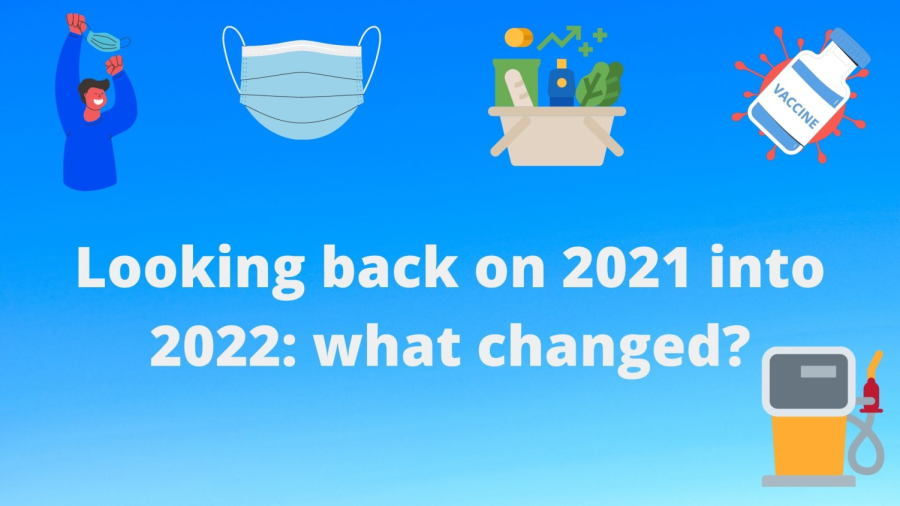Looking back on 2021-22: what changed?
After two years of COVID, things are slowly going back to normal. What changed in the past school year?
May 27, 2022
Late 2021 and early 2022 brought many geopolitical changes around the globe. On a smaller scale, what has changed in Pleasanton over the course of the school year?
A year of COVID and normalcy
The first day of school is a sight unfamiliar to many: unfamiliar faces, unfamiliar surroundings, and unfamiliar customs. After a year of online learning, incoming freshmen and many sophomores entered the school to learn for the first time.
“Being inside last school year, I definitely feel like people were used to being by themselves and that caused others to be more antisocial at the beginning of the school year,” said Paige Morgan (‘23).
Everybody, at the time, was required to wear masks. Yet, slowly, the mask mandates have lifted by March – two months before the end of the year. We saw the Amador slowly unmask by early April.
Although this year has been dictated by COVID, there has been some return to normalcy – many Amador events returned from rallies to the lip dub. This return has brought some sense of normalcy to many once again.
“The rallies and lip dub made it really feel like a normal school year, and it’s crazy to think that it wasn’t possible for over an entire year. This is a time for people to build relationships, and many missed that opportunity but are gaining it back,” said Razin Choudhury (‘23).
Economic turmoil
However, on a larger scale, Pleasanton and Amador have experienced their fair share of economic troubles that plagued the country and the world.
Gas prices have been soaring, as California’s prices have reached an average over 6$ per gallon. Many factors have contributed to these high prices, including the Russian Ukraine crisis which caused many European countries to turn to OPEC after banning Russian oil. In turn, this increased demand while depleting supply, ultimately resulting in higher prices for Americans.
Covid was another factor for the steep rise in gas prices. At the start of the pandemic, many people were not leaving their homes and driving their cars less. The unexpectedness of the pandemic caused producers to halt production but with the development of vaccines and eased Covid restrictions, demand increased while supply decreased dramatically.
“I was contemplating getting my driver’s license, but rising gas prices was definitely one of the reasons I decided to wait,” said Eaton Huang (‘23).
Though the end of 2021 brought promise to an economy rebounding after the pandemic, with a 5.7% growth, recent problems including a 41-year high of inflation at 8.5%, have caused a steep price increase on everyday products like meat and electricity. Recently, some products have been in such high demand that they are nowhere to be seen at grocery stores, most notably baby formula.
To combat this inflation and prevent a great recession, the government is raising interest rates on reserve balances to 0.9%. This is meant for consumers to steer away from spending more and contributing to inflation when the cost of browning increases, but this is putting more of an economic burden on citizens. Only time will reveal the result of this implementation, but the year is starting with an economic downturn




